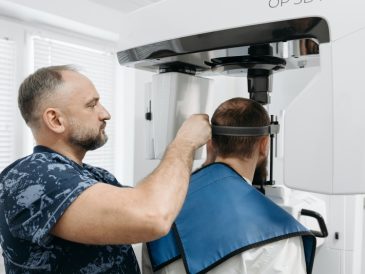Diabetes is a persistent clinical problem that impacts millions of individuals worldwide. It occurs when the body is not able to properly regulate blood sugar level levels, resulting in high levels of glucose in the bloodstream. If left unattended, diabetic issues can result in different difficulties as well as dramatically effect one’s quality of life. In this article, we will certainly explore the various symptoms and signs of diabetes mellitus and offer you with useful info on exactly how to recognize if you have diabetes mellitus.
Understanding the Types of Diabetes mellitus
Before diving into the signs of diabetes, it is important to acquaint on your own with the various types. There are three major kinds of diabetic issues:
- Type 1 Diabetes mellitus: This type takes place when the immune system erroneously attacks and ruins the insulin-producing cells in the pancreatic. It is normally detected in kids as well as young people.
- Type 2 Diabetes mellitus: The most common kind, type 2 diabetes, creates when the body becomes resistant to insulin or stops working to create sufficient insulin. It is usually associated with way of life elements such as inadequate diet plan as well as absence of exercise.
- Gestational Diabetes mellitus: This type of diabetes happens solely in pregnant ladies who have elevated blood sugar levels. It usually resolves after childbirth, however enhances the threat of developing type 2 diabetes later in life.
Since we have actually covered the different kinds of diabetes, let’s study the signs and symptoms to look out for.
Recognizing the Signs and Symptoms
Diabetes mellitus shows up in various methods and can affect various people differently. Nevertheless, some usual signs and symptoms include:
- Extreme Thirst and also Constant Urination: If you find yourself continuously feeling parched and requiring to urinate extra frequently than typical, maybe an indicator of diabetes. High blood glucose degrees can trigger the kidneys to work harder, leading to increased urine production.
- Unusual Weight Loss: Sudden and also inexplicable fat burning can be a sign of diabetes, especially in individuals with type 1 diabetes mellitus. When the body is unable to use sugar for power, it starts damaging down fat and muscle for fuel.
- Increased Appetite: Despite eating much more, individuals with diabetes might experience enhanced appetite. This takes place due to the fact that the body is not able to appropriately process glucose, leading to a continuous feeling of cravings.
- Exhaustion and Weak point: High blood glucose degrees can make you really feel exhausted and weak, as your body is not successfully transforming sugar right into energy.
- Blurred Vision: Diabetic issues can trigger blurred vision or problem focusing. High blood glucose levels can impact the form of the lens in your eye, bring about short-term adjustments in vision.
- Slow Recovery of Wounds: If you see that cuts or sores take longer to recover than normal, maybe an indicator of diabetes. Poorly managed blood sugar level degrees can harm the body’s capability to repair damaged tissue.
Diagnosing Diabetes mellitus
If you believe you might have diabetes mellitus based on the aforementioned signs, it is crucial to consult a healthcare expert for an exact diagnosis. The complying with tests are commonly made use of to diagnose diabetes mellitus:
- Fasting Plasma Glucose Examination: This examination determines your blood sugar level degrees after a duration of fasting. A fasting blood sugar level level of 126 mg/dL (milligrams per deciliter) or greater on 2 separate celebrations typically shows diabetes mellitus.
- Oral Glucose Tolerance Examination: After fasting, you will eat a sweet beverage, as well as blood sugar level degrees will certainly be checked regularly over the next couple of hours. A blood sugar level degree of 200 mg/dL or higher after two hrs confirms diabetic issues.
- Hemoglobin A1c Examination: This examination provides an average of your blood sugar degrees over the past 2 to 3 months. An A1c level of 6.5% or greater is generally a measure of diabetes.
Taking Care Of and also Dealing With Diabetes
If you obtain a medical diagnosis of diabetes, it is essential to work carefully with your healthcare group to establish a tailored administration acuflex for ears strategy. This normally includes:
- Maintaining a Healthy Diet plan: A well balanced diet regimen abundant in fruits, vegetables, entire grains, lean proteins, and also healthy fats can assist manage blood sugar level levels as well as overall health.
- Normal Physical Activity: Participating in routine exercise can enhance insulin sensitivity, lower blood sugar level degrees, as well as help in weight monitoring. Talk to your health care team to establish the proper workout program for you.
- Checking Blood Glucose Degrees: Regularly checking your blood sugar levels making use of a glucose meter enables you to make informed decisions concerning medication, diet regimen, as well as exercise.
- Taking Drug as Prescribed: Relying on the type and intensity of diabetic issues, your healthcare provider may recommend oral medicines or insulin injections to aid manage blood sugar level levels.
- Handling Stress Degrees: High levels of tension can impact blood sugar level levels. Utilize anxiety administration strategies such as reflection, deep breathing exercises, urotex forte or participating in pastimes to aid keep stable blood glucose levels.
- Regular Medical Exams: It is vital to schedule regular appointments with your medical care group to check your diabetic issues management, screen for problems, and also change treatment plans if required.
Conclusion
Identifying the symptoms and signs of diabetes is crucial for very early detection as well as administration. Watch for excessive thirst, frequent peeing, unexplained weight-loss, enhanced cravings, exhaustion, obscured vision, and slow-moving injury recovery. If you experience any one of these signs and symptoms, consult a health care expert for an exact medical diagnosis. By actively managing your diabetic issues via appropriate medicine, a healthy and balanced way of life, and also regular clinical check-ups, you can lead a meeting life while decreasing the danger of issues.


